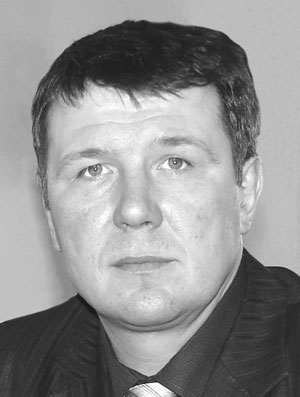Formation of Psychological Aspect of Sports Mastery of Students of Further Education System
Фотографии:
ˑ:
A.V. Kokurin, Ph.D.
Mordovia State Pedagogical Institute named after M.E. Evsevev, Saransk
Key words: sports mastery, psychological aspect, further education.
The development of mass physical culture and sport is one of the crucial government objectives related to the national health improvement and teaching of the younger generation. Sport which creates sports culture values has always been a powerful social phenomenon and a key to successful socialization. With proper organization of sports activities, it can be a serious and effective tool for facilitating social activity and healthy lifestyle. However, according to experts, with all the versatility of its forms, the modern system of physical education failed to involve the bulk of children and youth inregular physical exercises.
Sports skills include a number of interrelated structural components such as anatomic and physiological (power), technical-tactical and psychological. The psychological component is one of the most important and least studied.
The purpose of the present paper was to examine the formation of the psychological aspect of sports skills of students as a compulsory condition of efficiency of sports training in further education institutions.
Thanks to the obtained results the main directions of the teaching and training process was determined in sports institutions of further education. We designed and introduced a specially organized teaching and training process, different from the traditional one, developed and implemented a set of pedagogical conditions.
During the forming phase of the experiment groups of students with different levels of development of sports skills were allocated. Thanks to distinguishing these groups the teaching and training process in a sports school was further personalized and differentiated in view of the zones of current and proximal personality development of students.
References
- Balsevich, V.K. Sports vector of physical education in Russian schools. – Moscow: Teoriya i praktika fizicheskoy kultury i sporta, 2006. – 112 P. (In Russian)
- Boyko, V.F. Wrestlers' physical training / V.F. Boyko, G.V. Dan'ko. – Moscow: Divizion, 2010. – P. 173–175. (In Russian)
- Dement'ev, V.L. Wrestler's pecialized perceptions / V.L. Dement'ev, V.V. Gozhin, A.Yu. Lushnikov. – Moscow: Fizicheskaya kultura, 2011. – P. 141–144. (In Russian)
- Dubova, M.V. Competence task as a means of achieving educational effects in training of primary schoolchildren / M.V. Dubova, S.V. Maslov // Gumanitarnye nauki i obrazovanie. – 2013. – № 1. – P. 18–24. (In Russian)
- Kokurin, A.V. Wrestlers' training in a children's sports school / A.V. Kokurin. – MordSPI, 2008. – P. 17–19. (In Russian)
- Kokurin, A.V. Pedagogical conditions of formation of sports skills in further education institutions: abstract of Ph.D. thesis / A.V. Kokurin. 2006. – 18 P. (In Russian)
- Kuznetsov, A.S. The rules of Greco-Roman wrestling competition and their interpretation / A.S. Kuznetsov // Fizicheskaya kultura. – 2012. – P. 7–8. (In Russian)
- Lubysheva, L.I. 2010. Sports culture as a promising subject area / L.I. Lubysheva // Pedagogika. – 2010. – P. 44–49. (In Russian)
- Hardman, K. The situation of Physical Education in schools. HUMAN MOVEMENT. 2008, Vol. 9(1): 5–18.
- Kalervo, I., 2008. The differentiation of moral basis of sports in Finland. 12 International Scientific Congress «Contemporary Olympic and Paralympic Sport and mass sport», 3: 94–96.
- Kardelis, K., 2008. Educational interaction in physical education: the attitudes of physical education student teachers. 12 International Scientific Congress «Contemporary Olympic and Paralympic Sport and mass sport», 3: 93–94.
- Kisieliene, Alma, 2013. The features of the psychosocial performance of teenagers and sports classes as an impact factor. Theory and practice of physical culture, 7: 63–66.
- Munsey, C., 2007. A psychologist and a soldier. Monitor on Psychology, 8: 47.
- Rosnik, I.A. 1990. Expertise and political psychology, 1: p. 1–8.
- Statistics Handbook: Royal Spanish Athletics Federation in collaboration with LOK La Coruna, 2006. Madrid, 330.



 Журнал "THEORY AND PRACTICE
Журнал "THEORY AND PRACTICE